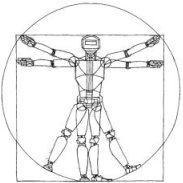Robotics: Science and Systems XII
Task Variant Allocation in Distributed Robotics
José Cano, David R. White, Alejandro Bordallo, Ciaran McCreesh, Patrick Prosser, Jeremy Singer, Vijay NagarajanAbstract:
We consider the problem of assigning software pro- cesses (or tasks) to hardware processors in distributed robotics environments. We introduce the notion of a task variant, which supports the adaptation of software to specific hardware con- figurations. Task variants facilitate the trade-off of functional quality versus the requisite capacity and type of target execution processors. We formalise the problem of assigning task variants to processors as a mathematical model that incorporates typical con- straints found in robotics applications; the model is a constrained form of a multi-objective, multi-dimensional, multiple-choice knapsack problem. We propose and evaluate three different solution methods to the problem: constraint programming, a constructive greedy heuristic and a local search metaheuristic. Furthermore, we demonstrate the use of task variants in a real in- stance of a distributed interactive multi-agent navigation system, showing that our best solution method (constraint programming) improves the system’s quality of service, as compared to the local search metaheuristic, the greedy heuristic and a randomised solution, by an average of 16%, 41% and 56% respectively.
Bibtex:
@INPROCEEDINGS{Cano-RSS-16,
AUTHOR = {José Cano AND David R. White AND Alejandro Bordallo AND Ciaran McCreesh AND Patrick Prosser AND Jeremy Singer AND Vijay Nagarajan},
TITLE = {Task Variant Allocation in Distributed Robotics},
BOOKTITLE = {Proceedings of Robotics: Science and Systems},
YEAR = {2016},
ADDRESS = {AnnArbor, Michigan},
MONTH = {June},
DOI = {10.15607/RSS.2016.XII.045}
}
